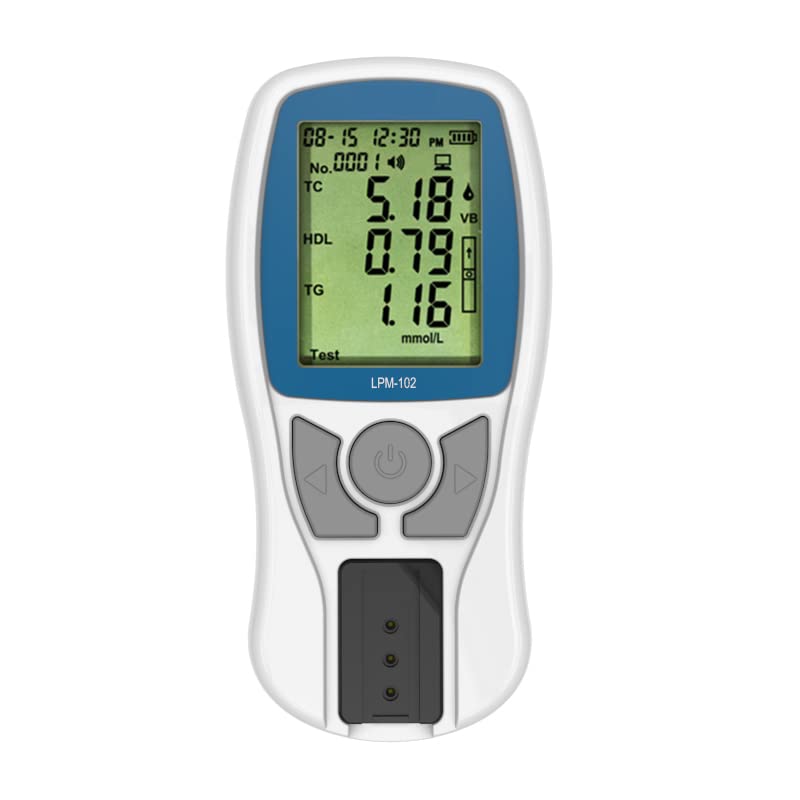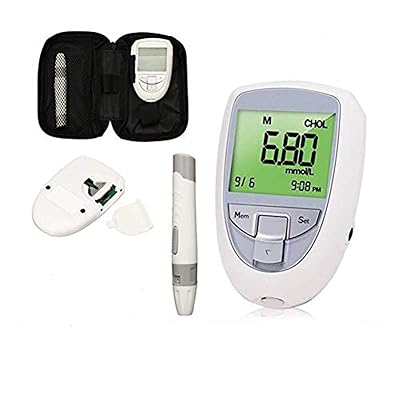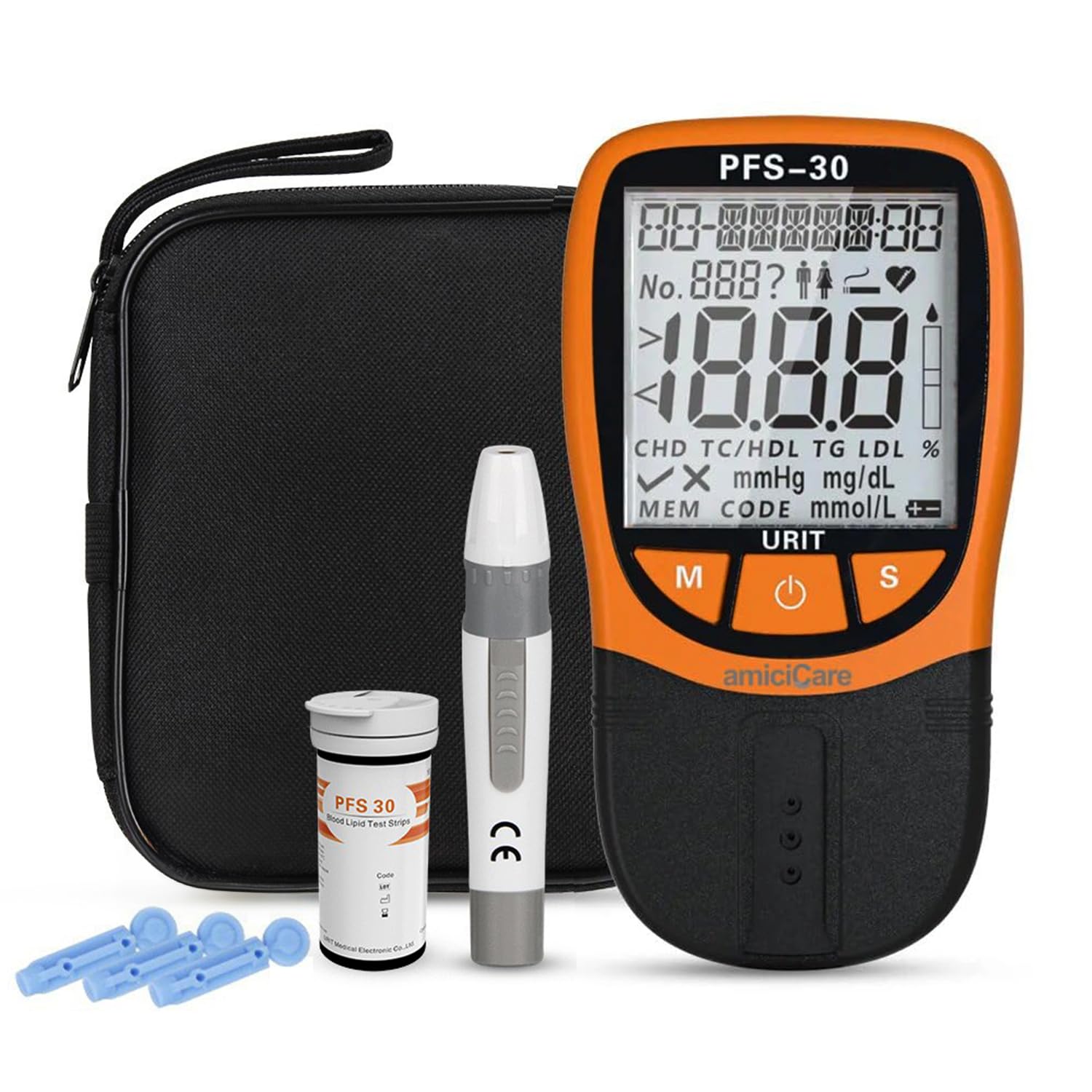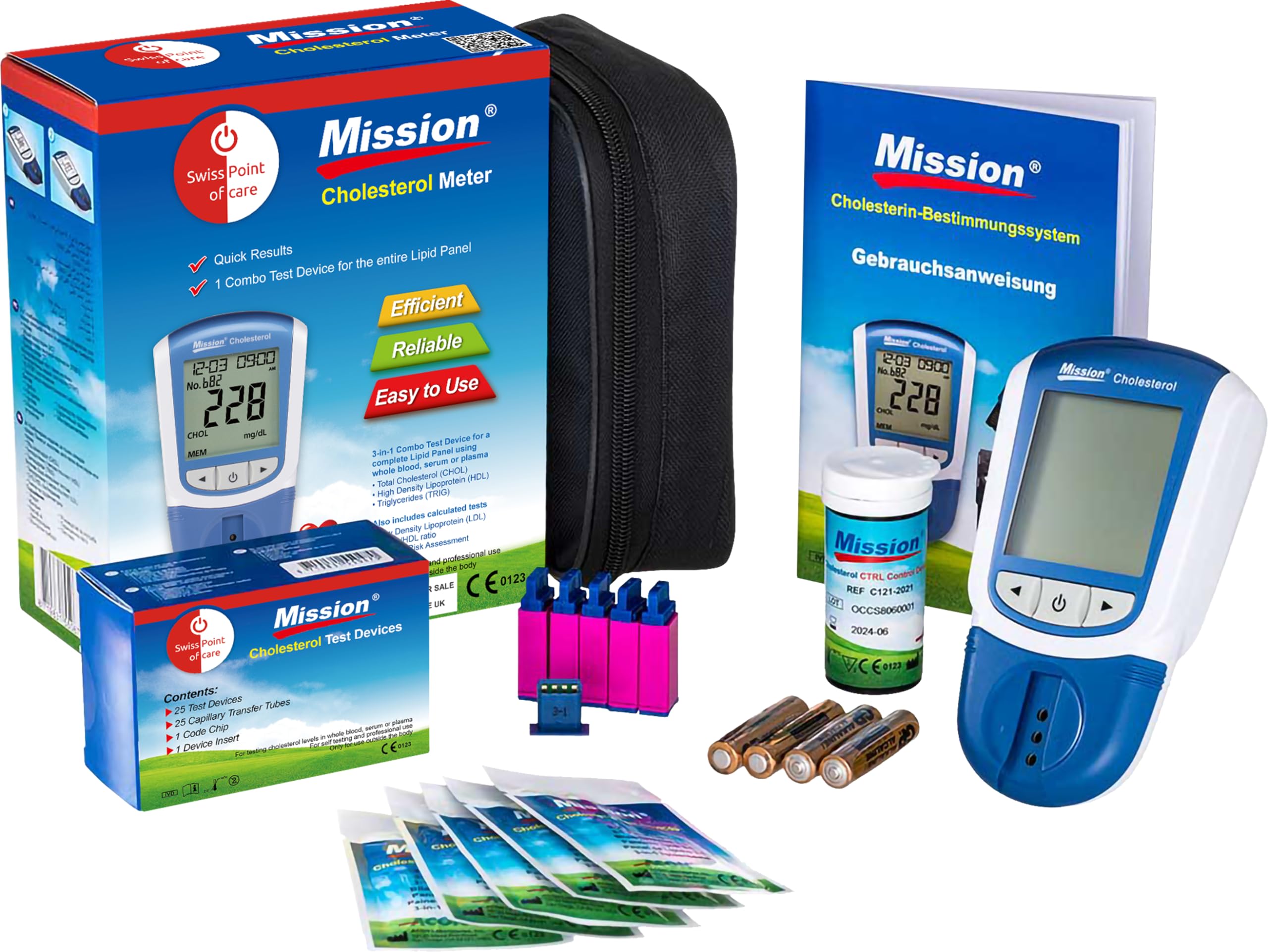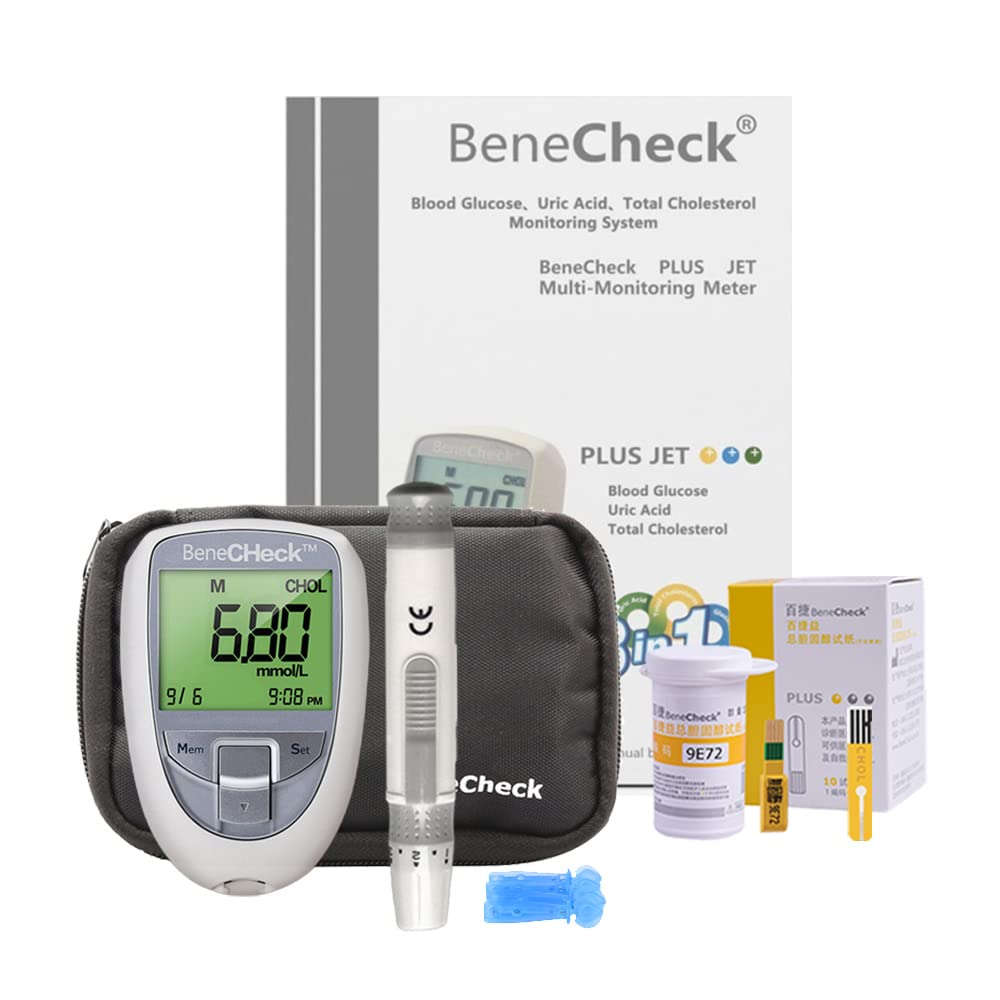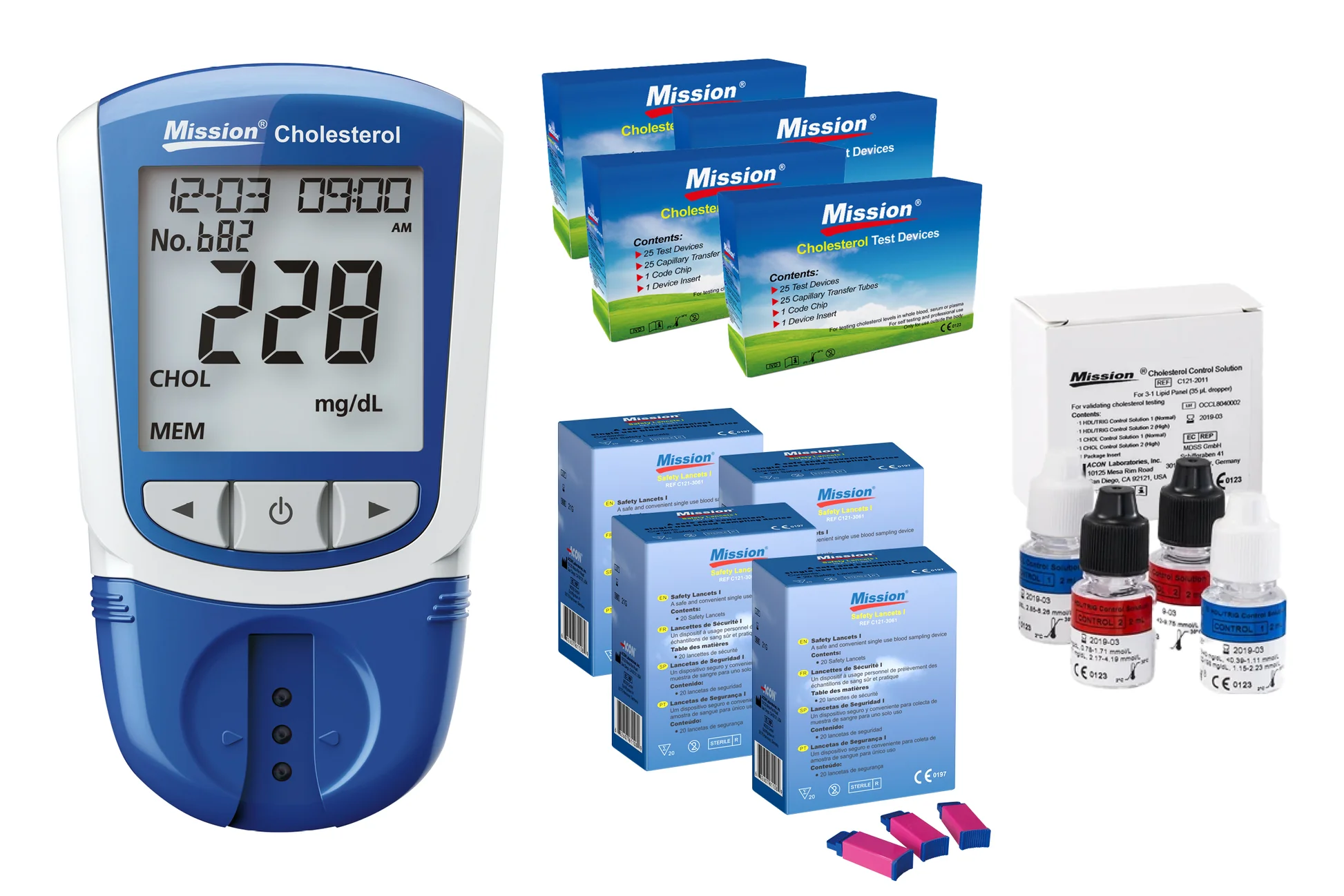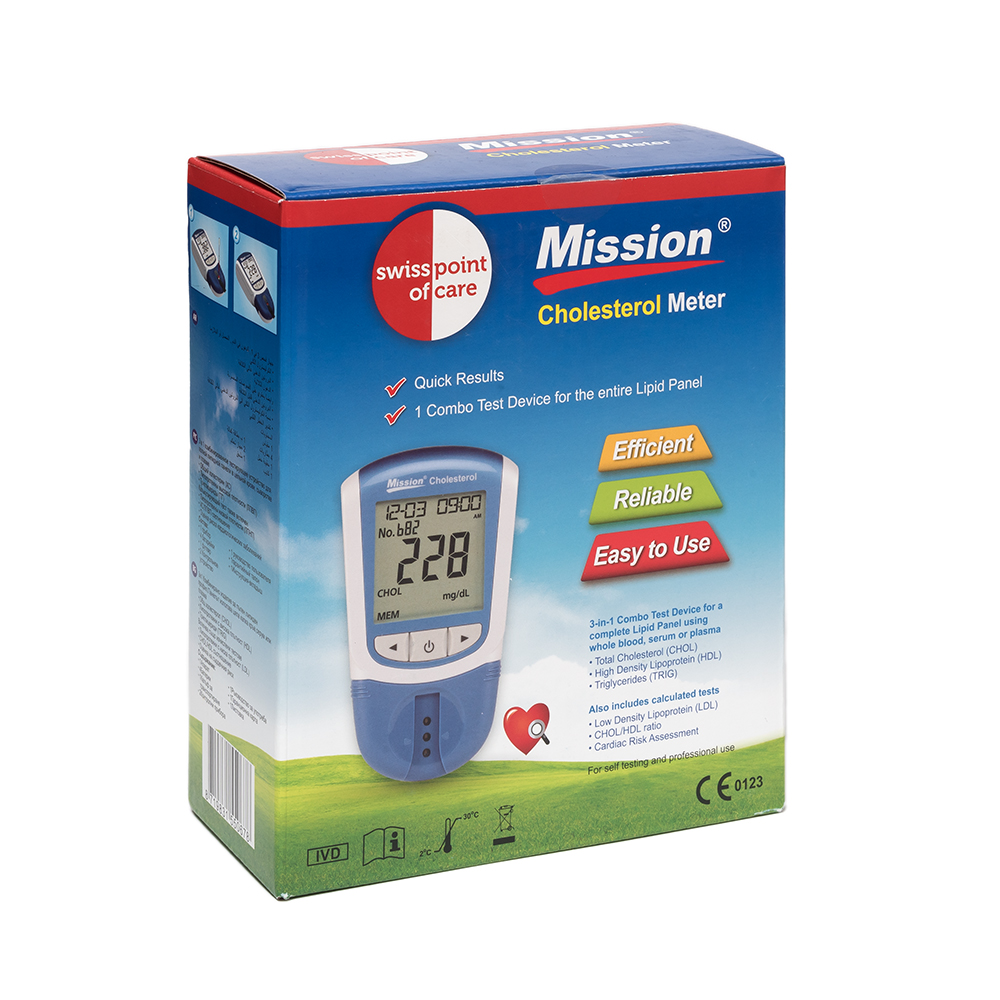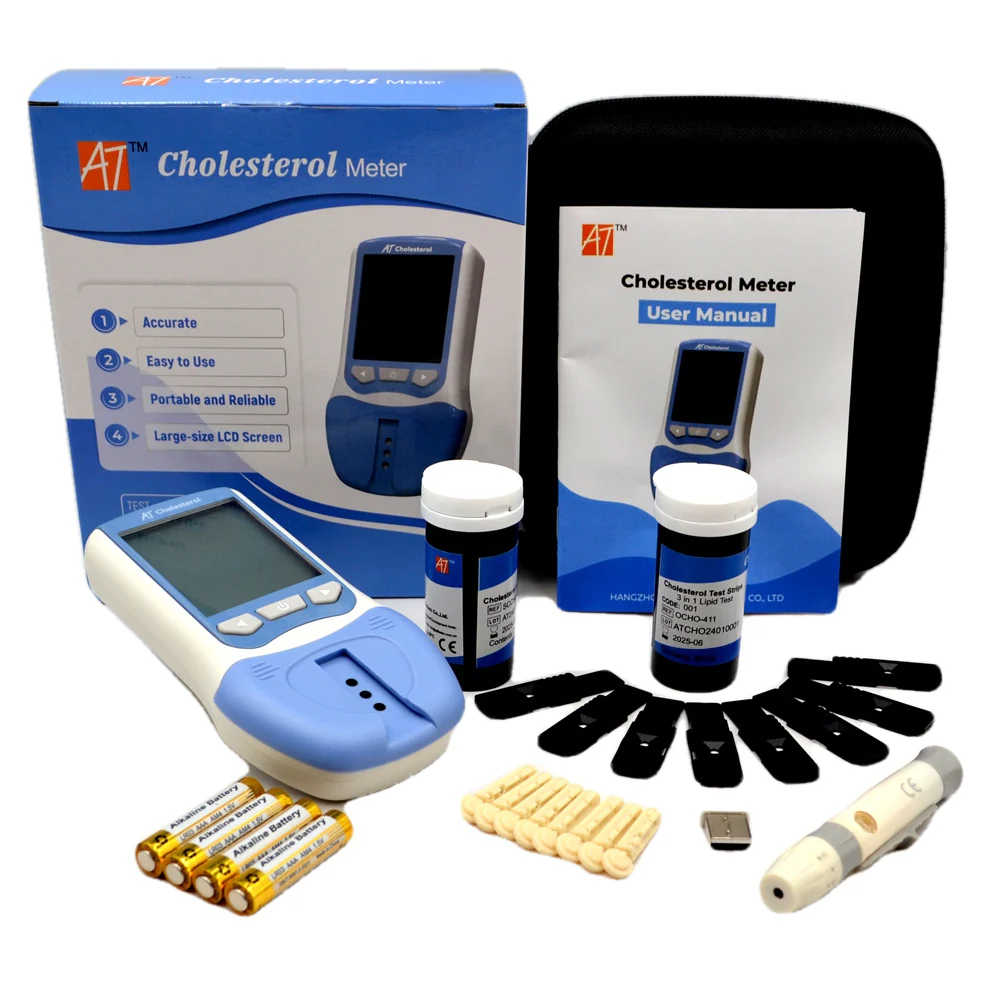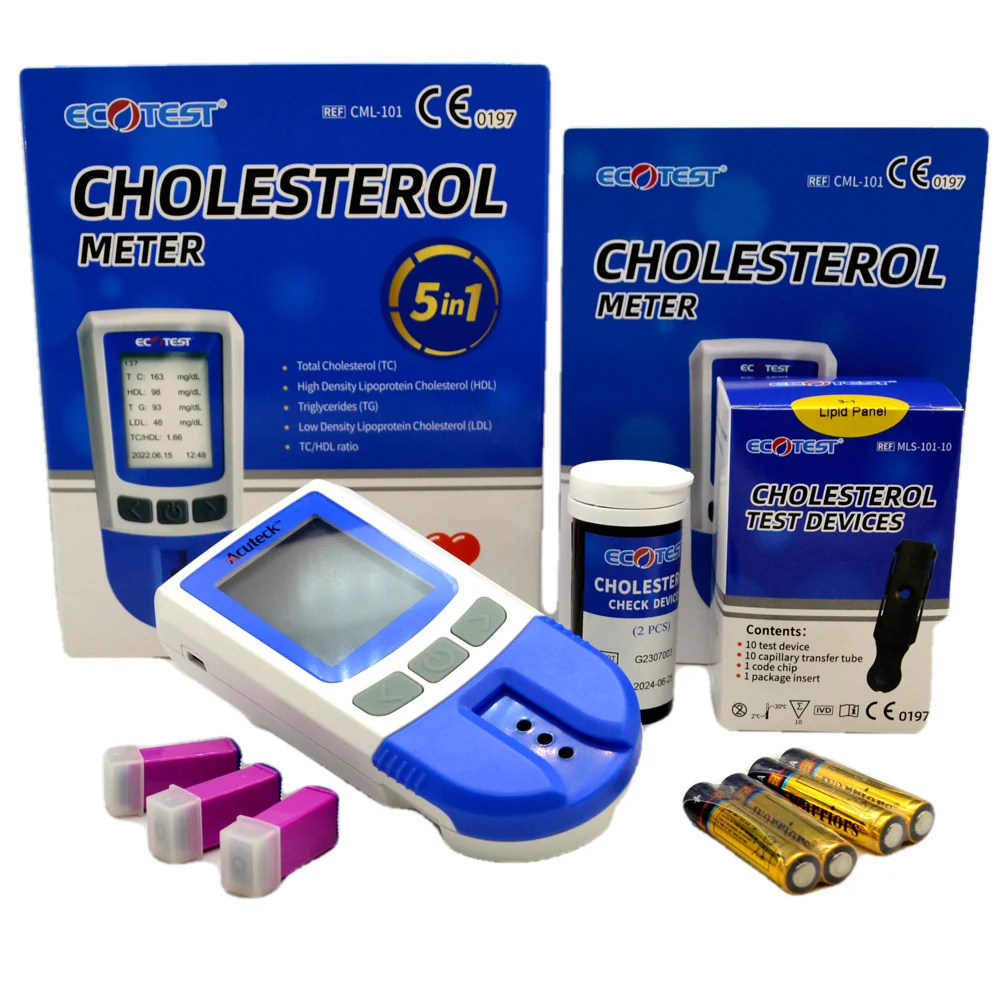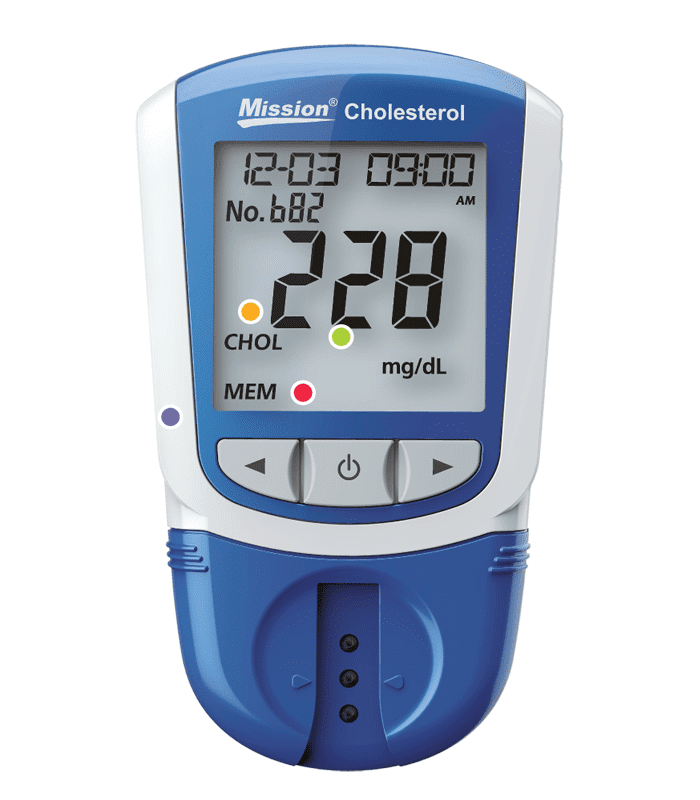Description
Cholesterol testing devices have become integral tools in the management of cardiovascular health, providing individuals with a convenient means to monitor their cholesterol levels regularly. These devices, ranging from simple at-home test kits to sophisticated laboratory analyzers, empower patients to take charge of their health by providing immediate feedback on their lipid profiles. At-home cholesterol testing kits typically require a small blood sample obtained via a fingertip prick, which is then analyzed on a disposable test strip. This accessibility enables individuals to keep tabs on their cholesterol levels without the need for frequent doctor’s visits, making it easier to adhere to prescribed health plans and dietary modifications.
In addition to the convenience of testing at home, advancements in technology have led to the development of more accurate and user-friendly cholesterol testing devices. Many modern devices offer digital displays, Bluetooth connectivity, and mobile applications that allow users to track trends in their cholesterol levels over time. These features not only foster greater engagement in personal health management but also facilitate collaboration with healthcare professionals through the sharing of data. Moreover, the rise of telehealth has further enhanced the utility of cholesterol testing devices, as patients can easily communicate their results to their clinicians for timely advice and intervention.
Despite the benefits, it is essential to recognize the limitations of cholesterol testing devices. Home tests may not always match the accuracy of laboratory results, leading to potential misinterpretations of one’s health status. Therefore, healthcare providers often recommend periodic laboratory testing to confirm home test results and assess overall cardiovascular risk comprehensively. Additionally, while monitoring cholesterol levels is crucial, it is equally important for individuals to understand the context of these numbers, including the implications of LDL, HDL, and triglyceride levels, and how lifestyle choices can impact their cholesterol health. Ultimately, cholesterol testing devices represent a valuable tool in modern healthcare, promoting proactive measures for heart health and encouraging informed conversations between patients and clinicians.


